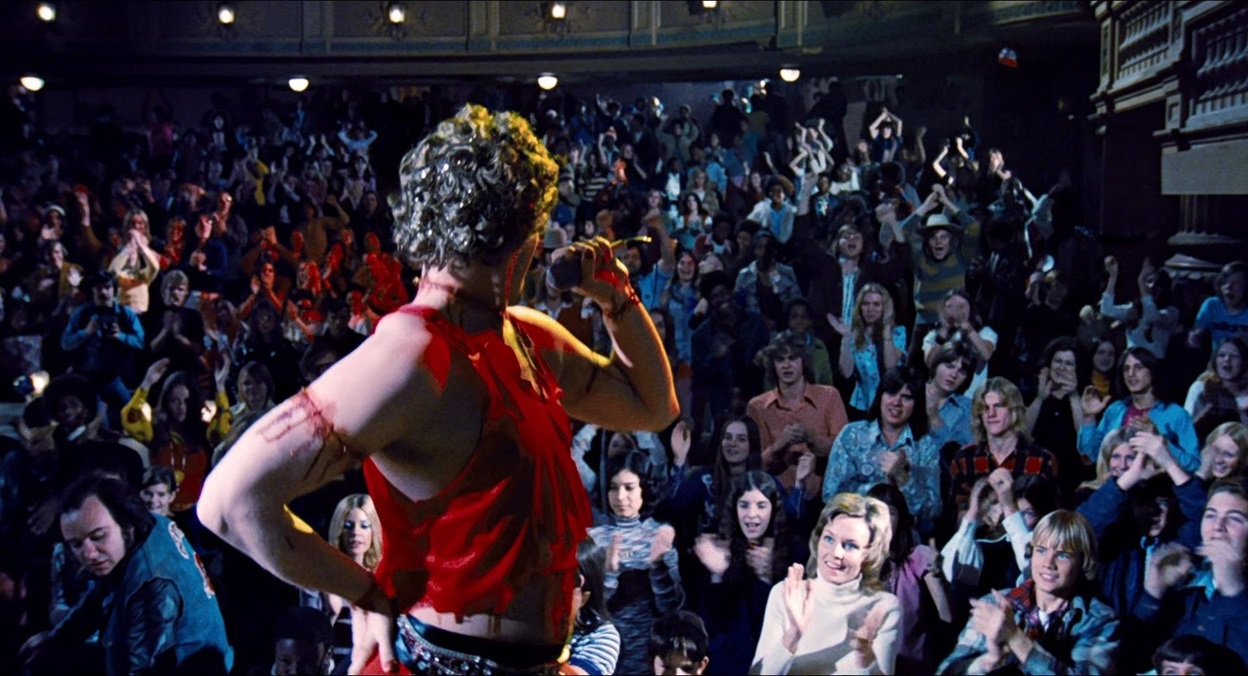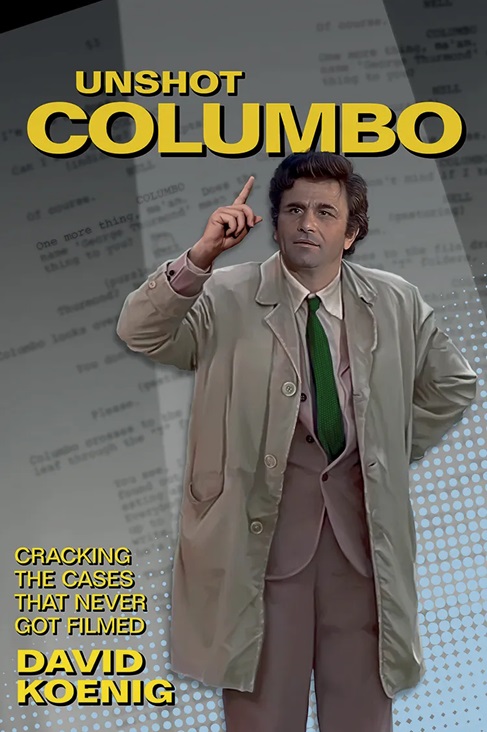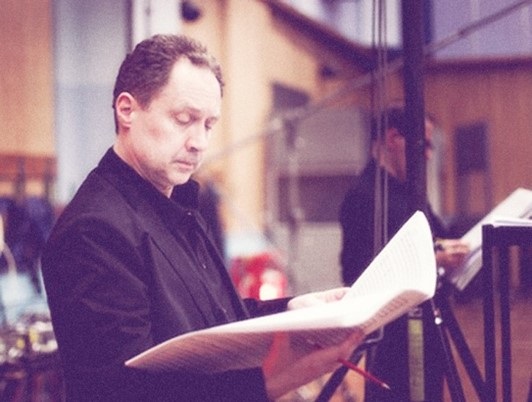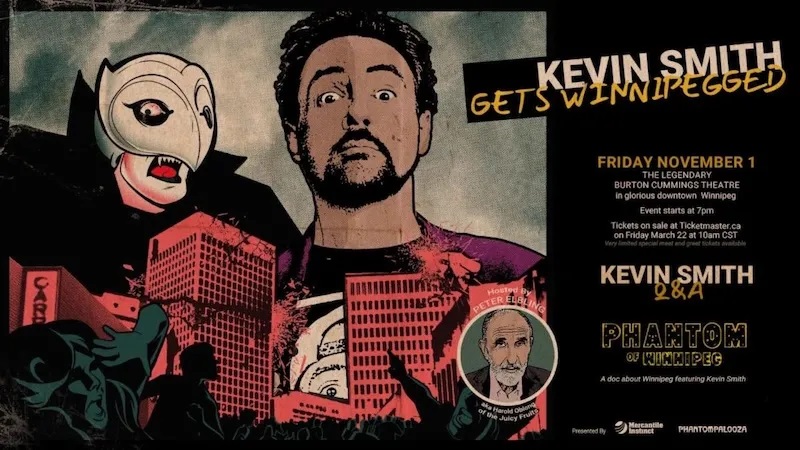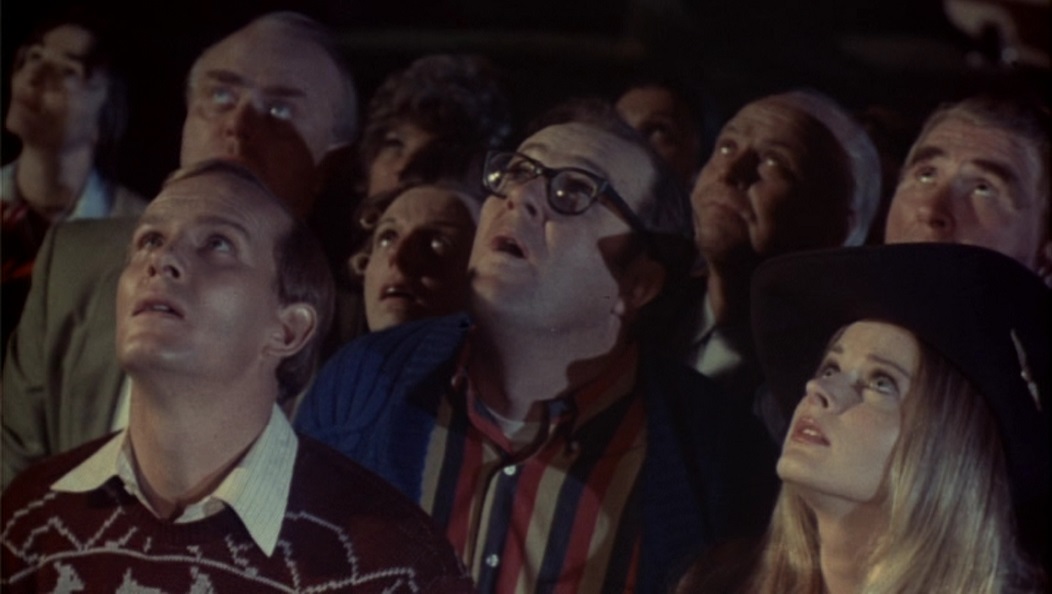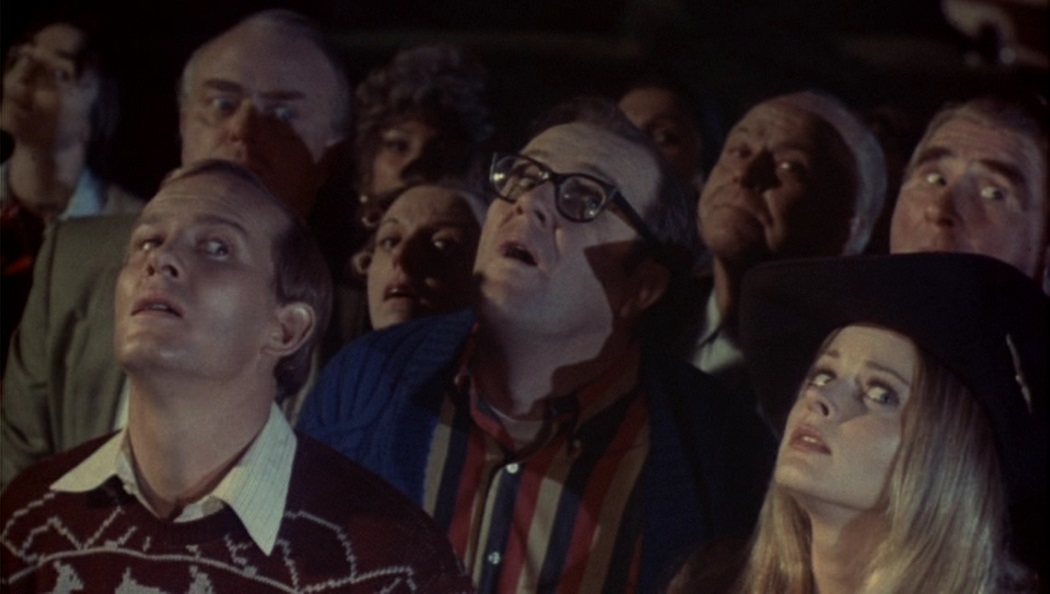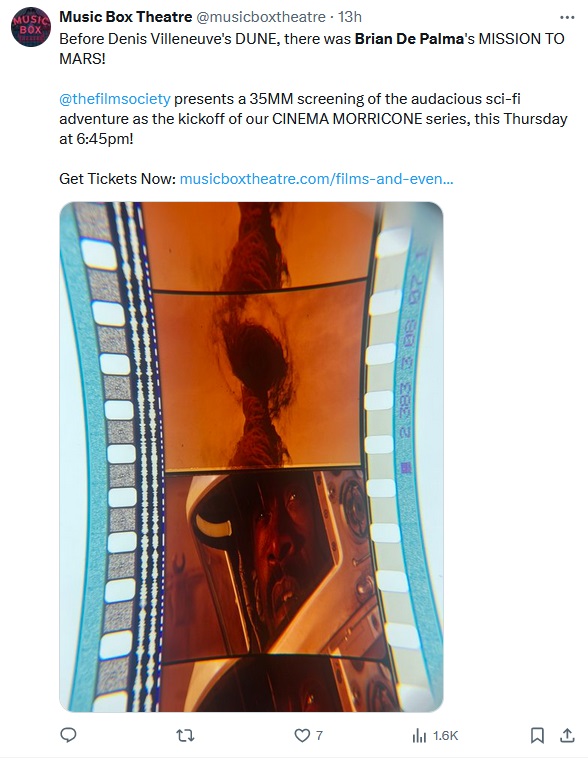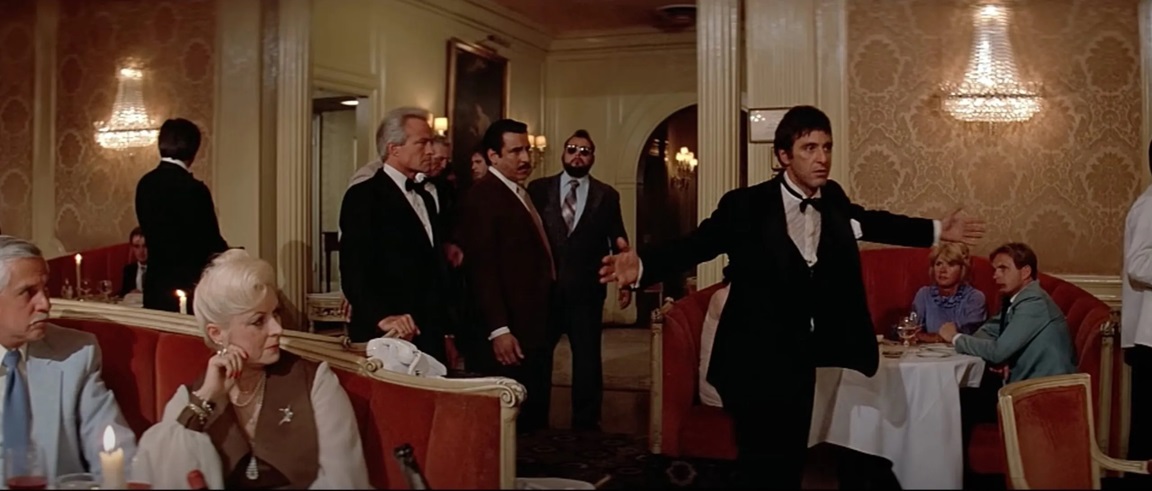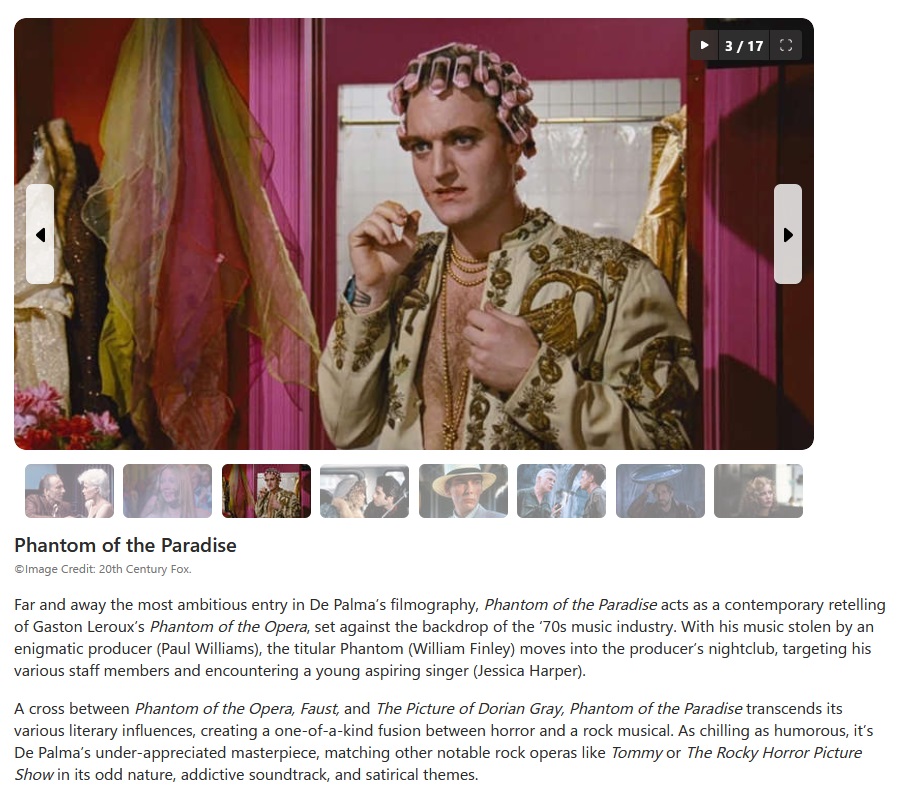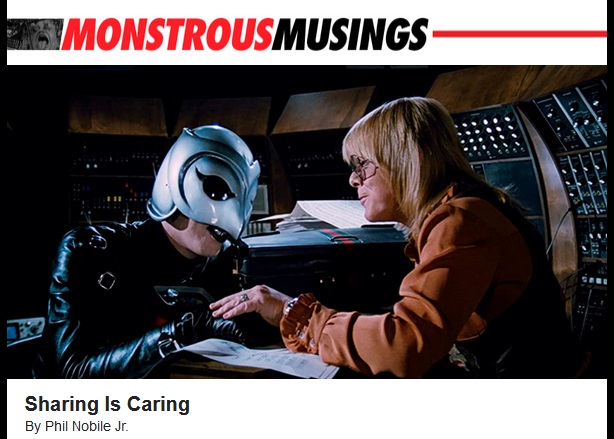'MORRICONE'S ROUSING SONIC PORTRAIT OF 1930 CHICAGO'
CHICAGO TRIBUNE'S MICHAEL PHILLIPS PREVIEWS MORRICONE TRIBUTE AT MUSIC BOX THEATRE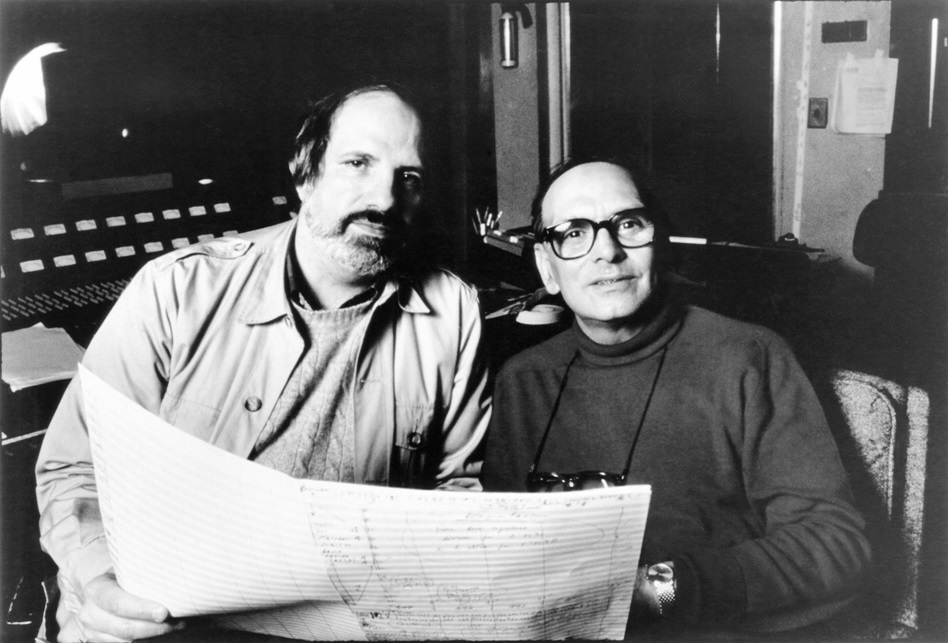
As mentioned here
last month, Chicago's
Music Box Theatre will feature a week-long "Cinema Morricone" series, which launches this Thursday evening, March 21, with
Brian De Palma's
Mission To Mars. The series then continues the following afternoon with a 2pm screening of De Palma's The Untouchables. A couple of days ago, the
Chicago Tribune's Michael Phillips previewed the upcoming film series:
Somewhere between 400 and 500. That’s a lot of film scores for one composer in one lifetime to write, and orchestrate, and store in the memory banks of millions of listeners worldwide. The Italian maestro Ennio Morricone (1928-2020) hardly needed more than a handful of those scores for him to gain entrance to the realm of screen theme immortals. The howling-coyote signature melody for director Sergio Leone’s “The Good, the Bad and Ugly,” parodied to death for nearly 60 years now, would’ve been golden ticket enough.
But what if he had stopped there? Unthinkable! Decades and hundreds more movies, diminished. We wouldn’t have Morricone’s indelible evocations of nostalgia, and loss, and hope, in “Days of Heaven” or “Cinema Paradiso” or “The Mission.”
We wouldn’t have the rest of his collaborations with Leone, including “Once Upon a Time in the West.” Or – maybe my favorite, though I’ll change my mind by tomorrow – Morricone’s rousing sonic portrait of 1930 Chicago for Brian De Palma’s “The Untouchables.” The film itself may be factually ridiculous because it cares not about sticking to the historical record. Welcome to the movies! The score creates an aura of myth, from the first notes of the threatening marvel under the opening credits.
This Thursday the Music Box Theatre launches “Cinema Morricone,” sponsored by MUBI. It’s a weeklong, 17-film festival of movies, famous as well as obscure, celebrating the sheer scope and earworm mastery of this composer.
With one foot in the avant-garde and the other in mainstream classicism with a huge dash of pop, Morricone embraced the film medium’s innate capacity for violence (John Carpenter’s “The Thing,” screening March 22 and 27). Also its ability to break, heal and warm hearts on screen and in the audience (Giuseppe Tornatore’s achingly nostalgic “Cinema Paradiso,” March 24 and 25).
The Leone/Clint Eastwood/Morricone “ Man With No Name” trilogy takes its rightful place in the festival, along with “The Untouchables,” and some less venerated titles from the windmills of your mind. “Red Sonja,” for example (March 26-27), the Sandahl Bergman/Arnold Schwarzenegger ode to sword, sorcery and cheese. These are just a few of the titles, and “Cinema Morricone” concludes March 28 with the documentary portrait “Ennio,” directed by his friend, collaborator and “Cinema Paradiso” director Giuseppe Tornatore.
How did one man write so much so memorably, showcasing a pan flute here, an ocarina there, operatic sopranos and harmonicas and whistling (so much whistling!) everywhere? To further my musical smarts a little beyond the level of “it’s cool, therefore I like it,” I talked to Columbia College Chicago’s Kubilay Uner. He directs CCC’s Music Composition for the Screen Master of Fine Arts program. Uner also has composed for movies (“Force of Nature”), theme park rides (Corkscrew Hill at Busch Gardens) and video art installations (he’s in the permanent collection at Los Angeles County Museum of Art).
A few questions into that interview with Uner, Phillips brings
The Untouchables into the dicussion:
Q: Here’s a quote from “Ennio Morricone: In His Own Words,” conversations with Alessandro De Rosa, where he’s talking about music’s main function in relation to what’s on the screen. He quotes his friend Gillo Pontecorvo: “My friend used to say that behind every story cinema tells, there is a real story, one that really counts … music must find a way to bring out the value of that hidden story and highlight it.” That’s a really intriguing description of a film composer’s role, don’t you think?
A: I think all film composers can relate to that. There’s something fundamentally useless, most of the time, if you’re just duplicating with music what the film is already doing. Now, there are exceptions. Sometimes you want everybody (executing) the same moves for maximum impact, so the visuals, the storyline, the acting, the editing and the music all push one thing. That’s great for a high-intensity fight scene. But a lot of the time, and what Morricone’s so smart about, is what he’s describing in that quote, which is more prosaically called the subtext. There, the question for the composer becomes: What’s actually happening in the scene? It’s an essential description of what film music is supposed to do. Q: Morricone started as an arranger, and got his first on-screen composing credit for “The Fascist” in 1961. His output is staggering, across six different decades. Do you think he ever felt burned out, or that he’d sold out? A: I don’t think so. I don’t think you can write close to 500 scores with themes of his quality without believing in them. Even in his most accessible film scores, he’s pushing boundaries somewhere, with interesting chord progressions you just don’t hear in other movies.
Q: Until a decade or two ago I didn’t realize Morricone, and other film composers, often composed and sometimes recorded music before a film was actually shot. De Palma, in one interview, talks about “The Untouchables” (March 22 and 26), which is a score I love. Morricone read the script and met up with De Palma in New York for a few days and talked, and Morricone wrote several versions of four main themes for the picture on that trip. That kind of impressionistic film scoring versus scoring specifically to the director’s images —
A: — It does lead to a different result, obviously. I’m extrapolating, but I wonder if it aids in creating a kind of parallel story, the story underneath the story, that Morricone mentioned in that quote from the book. It’s not a super rare approach; some of the music by Trent Reznor and Atticus Ross (Oscar winners for “The Social Network” and Pixar’s “Soul”) I think was written that way. There was some criticism leveled at them from those who believe that isn’t really scoring in the purest sense. But think about the very beginning of music and movies: It was some dude sitting at a piano with a book of classical themes in the public domain, themes sorted by emotion or whatever. Love scene? Boom! Something by Brahms! Chase scene? Boom! Wagner! That’s how it all started, in a way.
